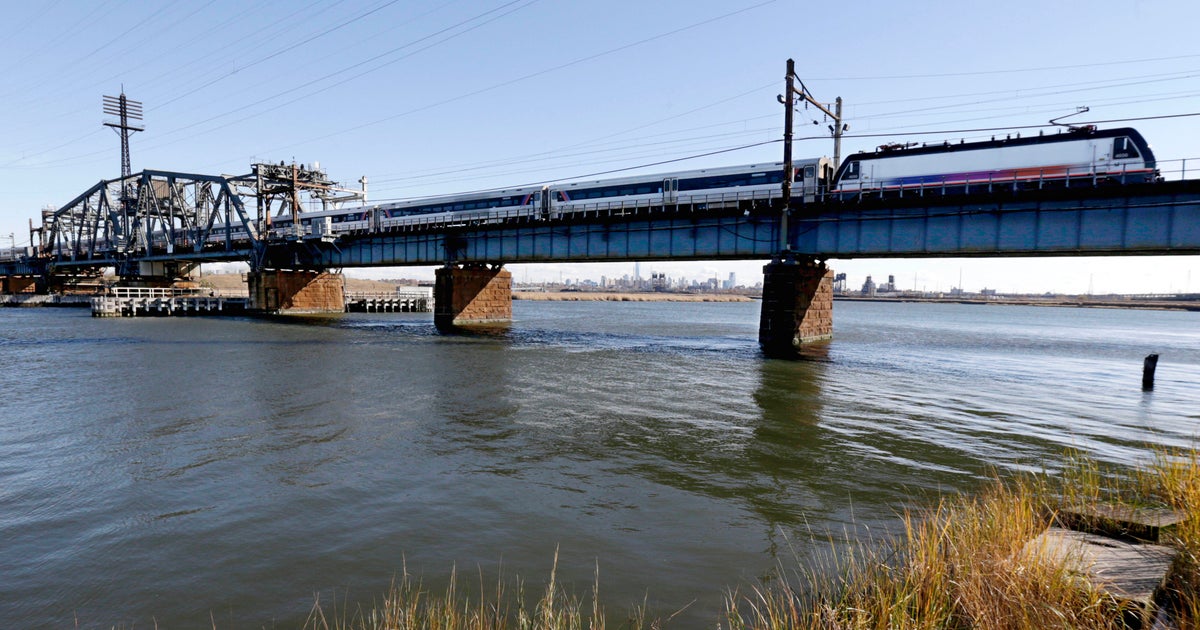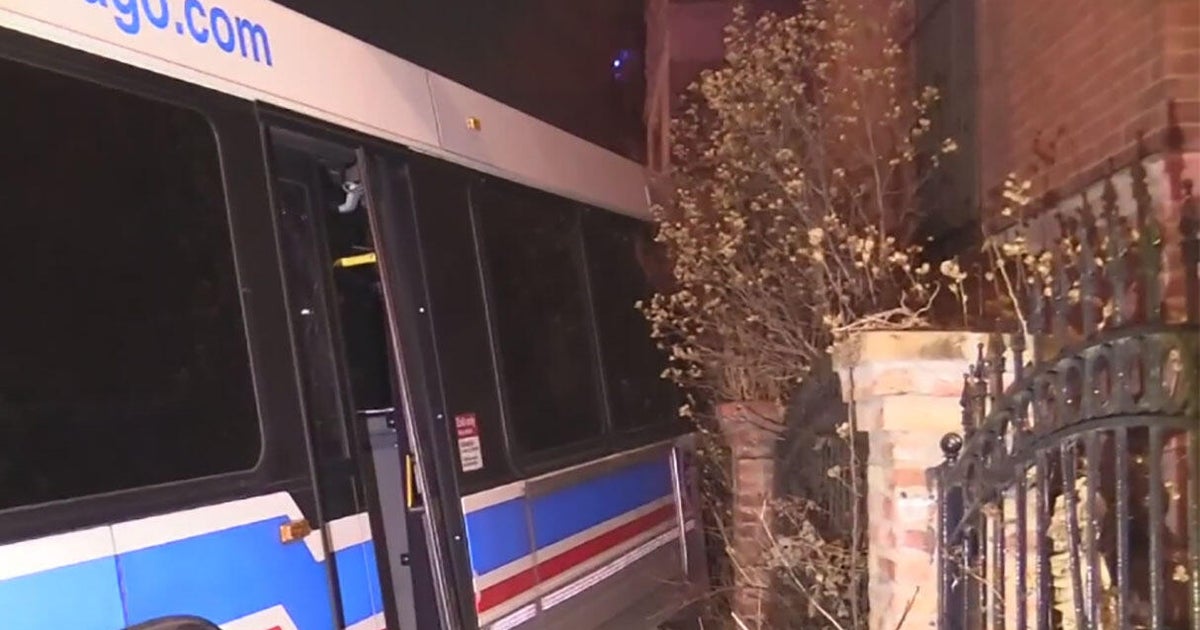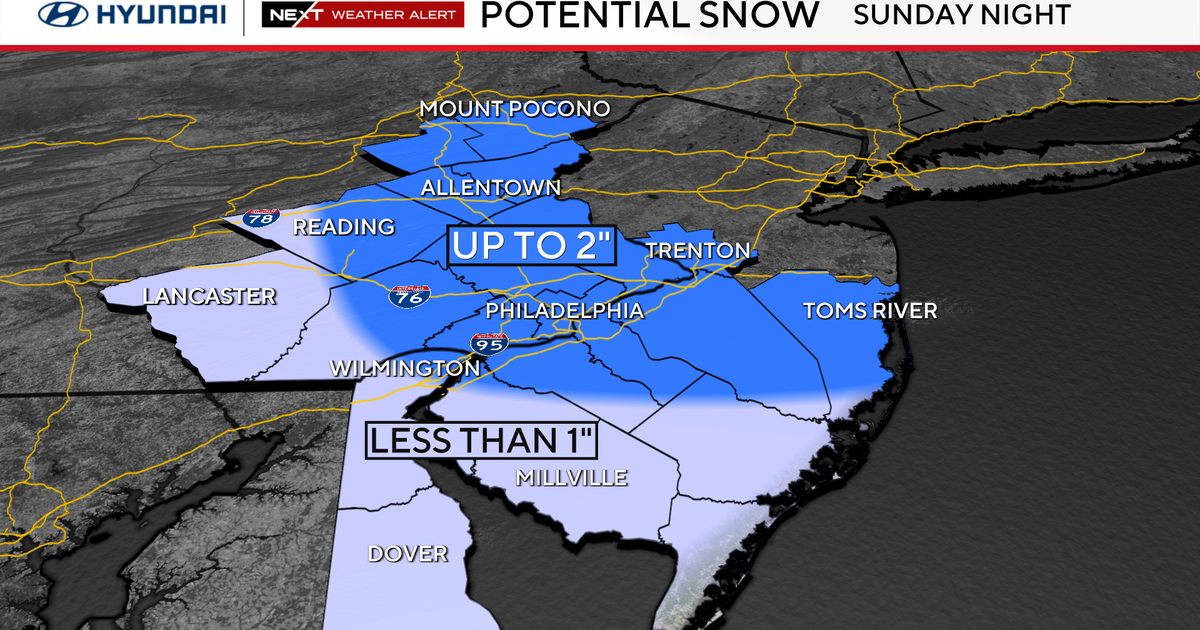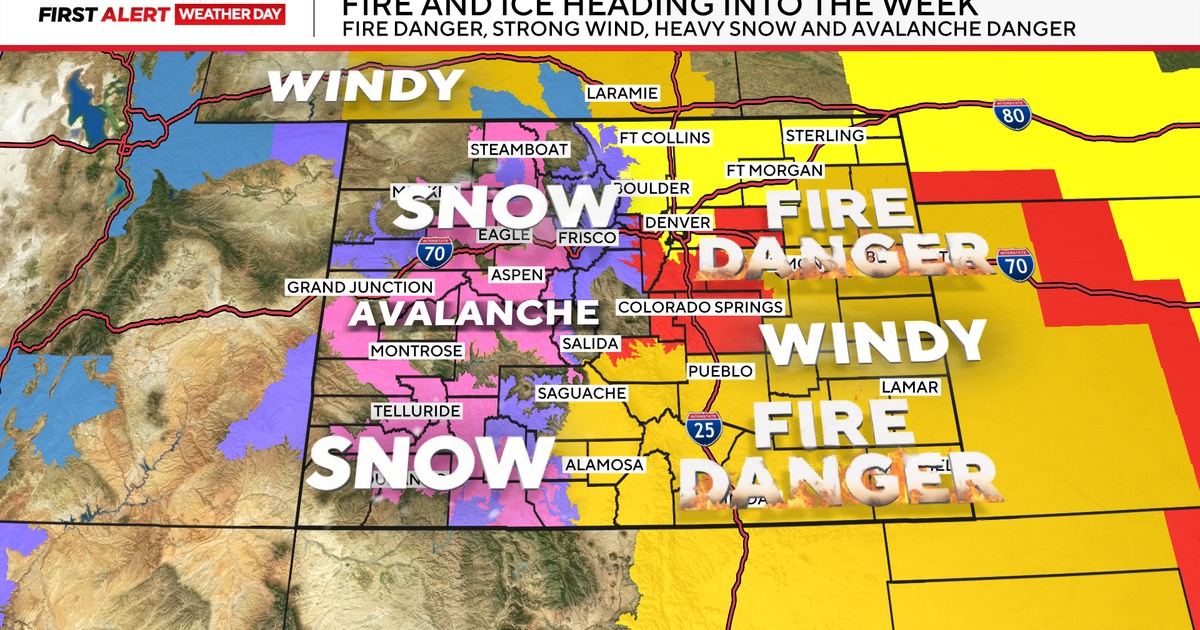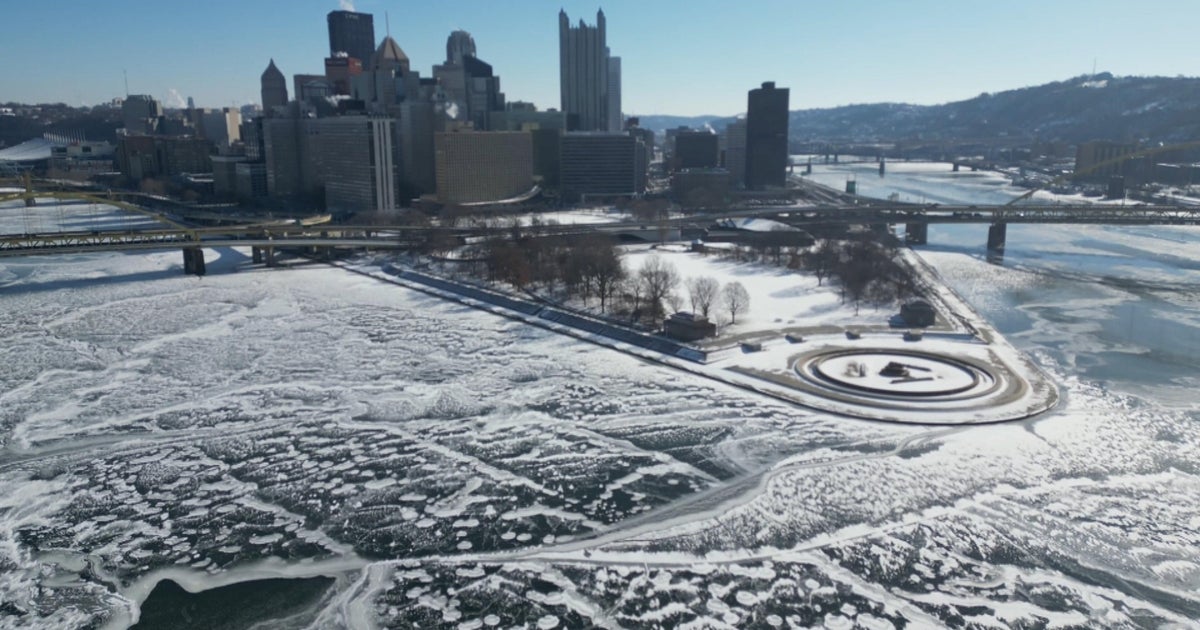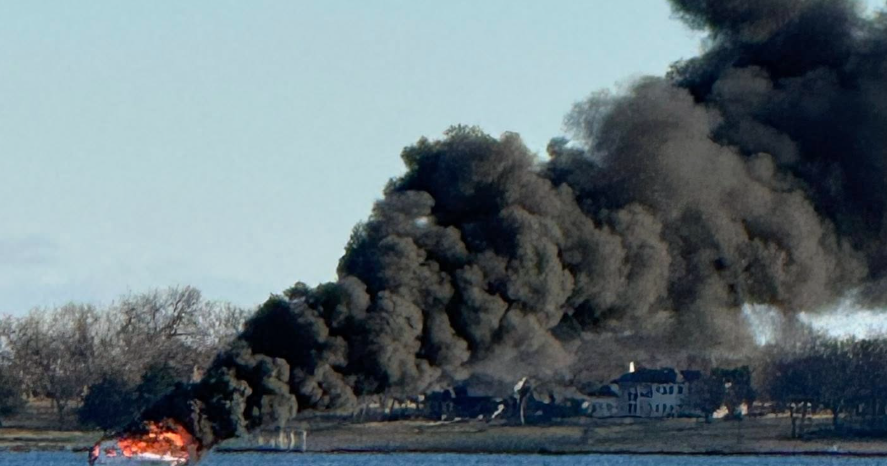Record-Breaking Bitter Cold, Dangerous Wind Chills Envelop Tri-State
NEW YORK (CBSNewYork/AP) -- Frigid air that snapped decades-old records took hold across the Tri-State area Tuesday, snarling air travel and transit and forcing delayed openings at schools across the region.
CHECK: Radar | Forecast & Alerts | Airport Delays & Cancellations | School Closings & Delays | Cold Weather Safety Tips
The National Weather Service said Central Park hit 4 degrees — a new record low for this date. It snapped a 118-year-old record low of 6.
CBS 2's Lonnie Quinn reported records were also shattered around the area, with 7 degrees replacing a record of 13 in Islip, and 4 degrees replacing a record of 11 at LaGuardia Airport.
By afternoon, the wind chill bottomed out at 17 degrees below zero at Central Park.
And as late as 5 p.m., the temperature only 9 at Central Park with a wind chill of minus 6. In Monroe, the air temperature was 0, with a wind chill of minus 18.
By 11 p.m., the temperature remained 9 degrees, with a wind chill of minus 6. The reading was a mere one degree higher than the 8 degrees seen in Fairbanks, Alaska, at the same time.
Bitter Cold, Dangerous Wind Chills Hit Tri-State
With temperatures in the single digits, some schools on Long Island, Rockland and Westchester counties issued delayed openings.
Wind is also a factor. A wind advisory was in effect into the evening for New York City as well as parts of Westchester, Long Island and New Jersey.
On Wednesday, the high will climb to 23 degrees, but will feel like 0 to 15 with the wind chill, Quinn reported.
The New York City Department of Buildings told contractors and property owners to batten down their buildings.
The department said Monday it would do random, spot-check inspections at construction sites to make sure equipment and debris are secured.
In New Jersey, temperatures in the single digits are combining with blustery winds to make it feel like it's well below zero across the state. Dozens of New Jersey schools also had delayed openings.
As CBS 2's Jessica Schneider reported, Jersey City emergency medical teams have been taking weather-related calls for several days. They started with an onslaught of slip and falls on the icy pavement, and now with the bitter blast, they have included patients who can't help but succumb to the deep freeze.
"A lot of slips and falls primarily, some hypothermia, homeless are a little more exposed," said emergency medical technician Chad Lawrence. "Like to try to get them into shelter or emergency room, and just try to get them help."
Barnegat Bay was completely frozen over.
In Connecticut, Gov. Dannel Malloy reactivated the state's severe cold weather action because of frigid temperatures.
Slick roads across Connecticut prompted school delays and forced state police to close Interstate 84 in both directions in Tolland for nearly two hours.
Keeping Safe From Bitter Blast
The Office of Emergency Management warned New Yorkers that prolonged exposure to the cold can cause hypothermia and frostbite and exacerbate chronic heart and lung conditions. Seniors and infants are most at risk.
"If you come upon someone who has slur speech or sluggish, they're confused and they're cold, they may be suffering from hypothermia," Dr. Thomas Farley, NYC's health commissioner, told WCBS 880's Rich Lamb. "Those are people who need to get into warm places right away."
Record-Breaking Bitter Cold, Dangerous Wind Chills Hit Tri-State
The Department of Homeless Services has enacted its Cold Weather Emergency Procedure, called Cold Blue, to protect the homeless -- opening up drop-in centers.
While CBS 2's cameras weren't allowed inside any shelters, Don Champion saw firsthand that they were packed. Arlene Thompson got warm in one center in Murray Hill.
"I'm thankful for it," she said. "I don't know. I guess I would be on the train."
And a St. Luke's Hospital in Morningside Heights, patient volume was up 30 percent in the last few days.
Dr. Jeffrey Rabrich runs the emergency room at St. Luke's, and said he has seen patients with frostbite and hypothermia -- and even people who can't take in the frigid air temperatures.
"We're seeing a lot of people with breathing problems, asthmatics, people who have respiratory issues -- the cold air hits their lungs and triggers an asthma attack," he said.
Doctors say if you do have to go outside, wear a hat -- preferably one that covers your ears -- or use earmuffs. Wear a scarf to protect your neck and wrap it loosely across your face.
For your fingers and toes, wear boots with tread and wool socks. Mittens are warmer than gloves. You should also dress in layers because they help trap body heat and keep you warmer.
"It's really important to be bundled up and warm regardless of how long you plan on being outside," said Dr. Chris Tedeschi with New York-Presbyterian/Columbia University Medical Center. "It's important to wear layers, but so many layers that you're sweating."
Doctors also said even exercising outdoors can be dangerous. Sweat can make it more likely for hypothermia to set in, so doctors advised if you do go outside, do it in moderation –- and watch for the warning signs.
"When you start getting those feelings like your fingers are hurting, feeling numb or tingling, they're already getting exposure to the cold, and that's the time to get out of the cold and start warming them up," Rabrich said.
The city's Department of Health encouraged everyone to stay indoors as much as possible and to check on friends, family and neighbors.
Cold Impacts Traffic, Transit
As CBS 2's Weijia Jiang reported, there was a wild dash at many train stations Tuesday morning – but not only because people were rushing for trains. They were desperate for shelter from the bone-chilling air.
"It's burning. Like, my face is on fire -- ice fire," one man said at the New Rochelle Metro-North station.
In Bronxville, one pair just missed out and was forced to wait another 15 minutes outside.
"We were running. We thought we were going to make it," a woman said. "But he closed the doors."
All of the area transit systems took precautions to protect both passengers and equipment Tuesday.
The Long Island Rail Road is taking steps to protect riders and its equipment during the deep freeze.
The railroad says the freezing temperatures pose a particular threat to its steel rails. They can break during sudden and extreme temperature drops. It says extra crews will be responding to any broken rails.
"We also deploy antifreeze trains that run up and down the entire system, and they put a thin coat of antifreeze on the third rails," said spokesman Joe Calderone.
Freezing temperatures also caused a risk for mechanical problems, and slowed down the signaling system that tells trains were to go.
"You have the thaw and freezing effect, and that can have an effect on switches on the rail itself," Calderone explained. "Sometimes we get broken rails."
LIRR's station waiting rooms will be open around-the-clock to keep riders warm.
Bitter Cold, Dangerous Wind Chills Hit Tri-State
All subway lines in New York City ran local for part of the day Tuesday, although the A Train had resumed express service in Manhattan in the afternoon. Alternate-side-of-the-street parking has been suspended.
NJ TRANSIT is cross-honoring tickets systemwide and also kept 24-7 waiting room hours Tuesday, Jiang reported.
Amtrak said it will be operating on a modified schedule Tuesday on the Northeast Corridor between Washington and Boston, as well as the Empire Line between New York City and Albany.
One Amtrak train from Washington, D.C. was an hour late Tuesday, as it encountered dangling power lines in Trenton, N.J. and workers scrambled to make repairs.
Due to high winds, speed restrictions have been issued for the Tappan Zee Bridge.
Frigid Temps Disrupt Air Travel
JetBlue Airways had stopped all scheduled flights to and from New York and Boston on Monday and Southwest ground to a halt in Chicago as airlines deal with a blast of freezing temperatures that has caused massive cancellations and delays.
JetBlue, which is facing hours-of-service maximum for its crews, slowly began resuming some flights Tuesday morning.
At LaGuardia Airport, a mother with a daughter bound for Chicago on American Airlines told WCBS 880's Paul Murnane the flight was canceled Sunday, Monday and twice again Tuesday -- once at the gate when many had boarded before they learned the pilot hadn't arrived.
Some people slept on cots lined up in hallways. Said one traveler trying to catch a flight since the weekend: "It beats sleeping in a chair."
LaGuardia Travelers Stranded By Weather
The extreme could only last one day. It will be very cold Tuesday night before the high starts to climb back up through the rest of the week.
Working In Cold
As WCBS 880's Marla Diamond reported, conditions were brutal Tuesday for those who work outside, especially when the wind blew.
Adio Kandiel, who works at a coffee cart on 97th Street and Broadway, said on days this cold, people don't even stop for a cup of joe.
New Yorkers Working Outside Endure Brutal Cold
"It's very bad," he said. "But what you gonna do?"
"It's not easy to do the job now," said Juan, a delivery man. "I hope summer is coming quickly."
And Sean Woods and his sign crew had to labor through the weather at work outside all day.
"It's not ideal," Woods said. "But work has to go on, right? So unfortunately, today is a day that we had to do it."
Natural Gas Prices Up As Mercury Drops
The surging price of home heating oil is adding insult to injury in this extreme cold.
Natural gas prices are at an all-time high in the east.
Aaron Calder, senior market analyst with the energy consulting firm Gelber & Associates, said while the prices spiked, there won't be sticker shock on your next utility bill.
"Utilities pay for long-term protection supply of natural gas so while you will pay a little bit more on your bill, you won't see the five or 10 times price increase that other people are paying," he told WCBS 880's Steve Scott.
Natural Gas Prices Spike As A Result Of Deep Chill
On Friday, natural gas in New York was going for $14 per unit. It has since spiked as high as $90.
Calder said the price increase is simply the law of supply and demand, triggered by the record cold temperatures.
"The majority of natural gas being moved in this country is moved by pipeline and the northeast has very little storage. So most all natural gas being used in the cities is brought there every day through a pipeline and there is a finite capacity. You can only put so much natural gas in the pipeline and so with the cold weather, there's a lot of people scrambling to secure natural gas to heat their homes and to create electricity," Calder told Scott.
Tri-State Area Bundles Up To Battle Cold
As CBS 2's Dave Carlin reported, there was plenty of extra misery for everyone who stood outside.
"It's freezing," said one woman who was outside with a baby, "and the bus hasn't come for like 40 minutes."
With that reality a risk, residents bundled up before they headed out the door, hoping to combat the freezing cold temperatures with plenty of layers.
But as CBS 2's Champion reported, even the biggest fur coat didn't always cut it.
"I was getting a brain freeze as I was walking," said Edward Watson of Manhattan. "I had to take my scarf off to tie it around my forehead."
On East Gun Hill Road in the Bronx, 1010 WINS' Al Jones spoke with one resident who took experts' advice and wore plenty of layers.
"Two pants, a skirt, two shirt, a scarf, a hat, a long coat, gloves, and I'm still cold," Keisha Taylor said.
Record-Breaking Bitter Cold, Dangerous Wind Chills Envelop Tri-State
Even those who enjoy the cold weather told Jones that the wind is a lot to deal with.
"If it wasn't for the wind it would be OK. I can deal with the cold, it's just the wind that bothers me the most. But that's what you get for the Northeast," Tony Galand said.
The temperatures were so brutal that it made even brief outings unbearable. In a matter of minutes, Kal Siam's coffee got cold during a brief walk in Jersey City.
But he couldn't just go home and forget the whole thing.
"Can't help it; got to do jury duty," Siam said. "I would stay home but I can't."
And one had to wonder what Robert Aouad was thinking when he set out for what was supposed to be a 5-mile-run in Central Park.
Aouan ended up quitting his run early, cold and exhausted after about 2 miles.
"It probably felt like 20," he said.
But for the junior varsity hockey team at St. Peter's Prep in Jersey City, the frozen forecast didn't stop them from hitting the ice.
A 90-minute practice in a partially open air rink made for quite a workout.
"It's really cold out here; my hands are freezing," said player J.T. Swetman. "It's too cold."
But coach Patrick McGrath said the players could handle it.
"They were emailing me all day asking if practice was on, I said, 'Absolutely,'" McGrath said. "I mean, if the winter classic can play, so can we."
PSE&G Customers Urged to Conserve Electricity
PSE&G in New Jersey has asked its customers to conserve energy Tuesday evening due to frigid temperatures and an increase in electrical demand.
Customers are being asked to conserve energy between 3 p.m. and 7 p.m., so long as health permits.
Residents can conserve energy by lowering thermostats, postponing use of major electric appliances such as dishwashers until after 9 p.m., and turning off lights and appliances that you do not need or are not using.
While PSE&G said it does not expect to exceed its all-time peak winter demand for electricity, which was set in 2007 at 7,195 megawatts, the utility said it expects usage will be close to the record.
The extreme cold could also lead to frozen pipes inside your home.
Avoid Frozen Pipes In Deep Freeze
"One thing you can do is open the cupboard doors, allow that air room temperature then to circulate underneath because usually those pipes in the kitchen aren't insulated and that's all you would need. Unless you still have troubles then you could at night time in the really severe cold weather, especially what we are dealing with now, you could just let a tiny little drip just go through the night. That way, it won't freeze," Brian Bruce with New York American Water advised.
The extreme cold did end up causing serious problems with some water systems.
In Elizabeth, N.J., the cold was blamed for a water main break on a street named for a distant memory and/or future event – Summer Avenue. Water gushed in the area for hours.
In Lodi, another break kept crews busy as well with aging pipes giving in to single digit temperatures.
Brutal Temperatures Hold Nation In Grip
Forecasters said some 187 million people in all could feel the effects of the "polar vortex,'' a dangerous blast of polar air, by the time it spreads across the country.
CBS News reported the morning weather map for the eastern half of the U.S. looked like an algebra worksheet - lots of small, negative numbers. In fact, the Midwest and the East were colder than much of Antarctica.
The Federal Emergency Management Agency monitored the record-breaking cold temperatures Tuesday, White House spokesman Jay Carney said. As of late in the day, however, there have been no requests for federal assistance, CBS News reported.
Birmingham, Ala., dipped to a low of 7, shattering the record for the date of 11 degrees, set in 1970. In Atlanta, which saw a record low of 6 degrees, fountains froze over, pipes burst and cars wouldn't start.
"This is severely cold for these parts," said Brian Lynn, a National Weather Service meteorologist in Peachtree City, Ga. "Single digits are a rare event."
Farther south in Pensacola, Fla., a Gulf Coast city better known for its white sand beaches than frost, streets normally filled with joggers, bikers and people walking dogs were deserted early Tuesday as temperatures remained in the teens after sunrise.
The Lower 48 states, when averaged out, reached a low of 13.8 degrees overnight Monday, according to calculations by Ryan Maue of Weather Bell Analytics.
Western New York didn't just have the cold to contend with. The area was also slammed by a blizzard.
Gusting winds of up to 50 mph made travel nearly impossible Tuesday for drivers who could barely see in front of them, after as much as 18 inches of snow fell in Buffalo overnight Monday into Tuesday.
The New York State Thruway was shut down from Rochester to the Pennsylvania state line Tuesday, and travel bans were enacted for much of Western New York and the Syracuse area. A state of emergency was enacted by Gov. Andrew Cuomo's office for 14 upstate counties.
And in Chicago, residents had endured a stretch of more than 36 hours of subzero temperatures by the Tuesday afternoon, when the temperature finally rose to 0 degrees at O'Hare International Airport.
On Monday, Chicago area hospitals saw several deaths and frostbite cases attributed to the subzero temperatures and snowstorms days earlier, reported WBBM-TV, CBS 2 Chicago.
And at Chicago's O'Hare, American Airlines reported that jet fuel lines froze and employees were only able to be on the ramp for a few minutes due to extreme wind chills, CBS Minneapolis station WCCO-TV reported.
The conditions were blamed for numerous deaths in Michigan, Illinois, Indiana and Ohio, CBS News reported.
Illinois Gov. Pat Quinn and Indiana Gov. Mike Pence issued disaster declarations, a first step toward seeking federal aid.
Check Out These Other Stories From CBSNewYork.com:
(TM and © Copyright 2014 CBS Radio Inc. and its relevant subsidiaries. CBS RADIO and EYE Logo TM and Copyright 2014 CBS Broadcasting Inc. Used under license. All Rights Reserved. This material may not be published, broadcast, rewritten, or redistributed. The Associated Press contributed to this report.)

